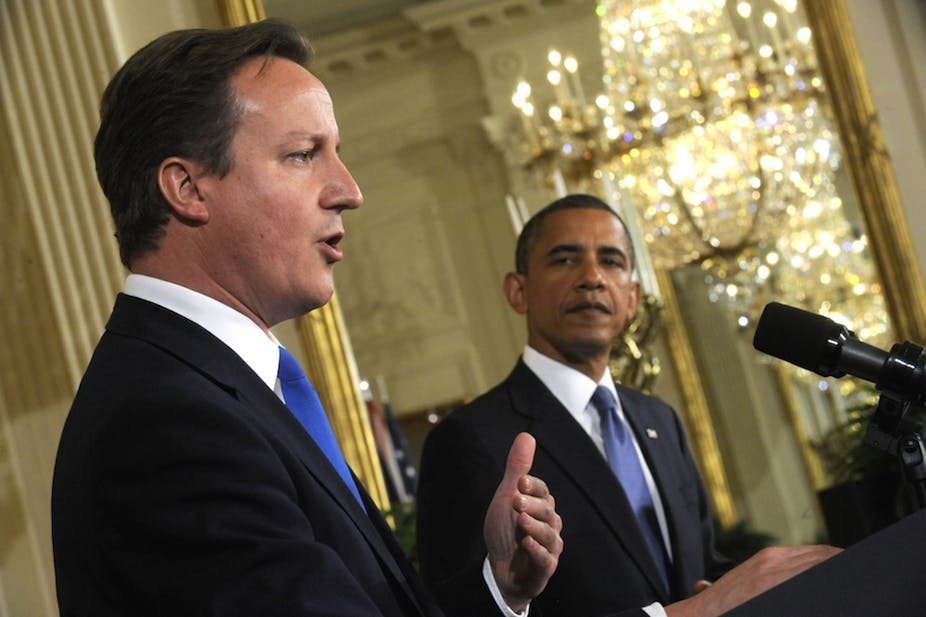In Wednesday’s state of the union address, US President Barack Obama threw down the gauntlet to Congress on climate change action - and in the process, cemented the re-prioritisation of the issue which began in the final weeks of his re-election campaign.
After two years of virtual silence, Hurricane Sandy brought climate change hurtling back onto the US press agenda, and that of the Obama Administration.
In the UK the silence has been not been so deafening, but British environmentalists have similarly had their hopes dashed over the last couple of years – as the pledge made by the coalition on its formation in 2010 to make the “greenest government ever” has been swept aside by a short-sighted austerity agenda and internal squabbling over the UK’s energy future.
But where America leads, the UK tends to follow – and just in the last few weeks, there is a hint that things might be changing. It’s early days but some bold rhetoric from the Prime Minister suggests that climate change and the green economy may be back – and that the naysayers in government, including Chancellor George Osborne, could have a reinforced battle on their hands.
‘Vote blue, go green’
In 2006, David Cameron, then leader of the opposition, posed with a pack of huskies in a bid to promote his party’s eco-credentials summed up in the slogan ‘vote blue, go green’. At that point, the environmental commitment was at the heart of the rebranding of the Conservative party as modern and compassionate – reflecting the public appetite for a progressive green agenda.
But the outbreak of the global recession in 2007 changed all that – and, ever since, the economy has taken precedence over everything else for governments in the West. While still officially promoting their green vows on taking office, since 2010 the coalition government has doggedly reasserted that the urgent priority is tackling the UK’s deficit whilst promoting economic recovery.
On the question of where environmental action and carbon reduction strategies sit in relation to this aim, at the Conservative Party Conference in 2011 Chancellor George Osborne put the country straight; “We’re not going to save the planet by putting our country out of business”. Cameron meanwhile stayed largely silent on the issue, refusing to make any major speech on environmentalism in his first two years in office.
It’s no secret that during the preparation of 2012 Energy Bill, the government was overwhelmed with internal squabbling over its content – with a group of conservatives led by the Treasury battling to undermine efforts to secure long-term investment in renewables and meet the decarbonisation targets set out in the ambitious Climate Change Act of 2008.
What the bill didn’t say was more of a talking point than the range of initiatives to reduce dependence on fossil fuels included. With no word on the all-important emissions reduction targets for 2030 or – more controversially - a ruling out of “fracking” for shale gas, the bill held a mirror up to the power battles in the government – and the sceptics seemed to be winning.
On the other side of the Atlantic however, the rhetoric was changing. In the last week of a presidential election campaign in which neither candidate had mentioned climate change, Hurricane Sandy hit the US. A surprise – and very public - endorsement of Obama from former Republican New York mayor Michael Bloomberg in response to the disaster moved the issue back onto his agenda – culminating in this week’s address.
While Cameron’s much anticipated speech on Britain’s EU membership in January continued to send out mixed messages – citing climate change as a key joint commitment and at the same time questioning European legislation on the environment – finally this month there have been signs of a genuine shift in tone.
At an understated launch of the government’s new energy efficiency mission Cameron gave arguably his boldest green speech since coming into power. In a restating of his green vows, he set out a powerful strategy for the future of the green economy and de-carbonisation, with a pointed assurance: “To those who say we just can’t afford to prioritise green energy right now, my view is we can’t afford not to”. Just days later the climate and energy minister underlined this sentiment with a speech attacking the “dogmatic” and “blinkered” climate sceptics undermining action to reduce emissions.
It’s small steps, but the “special relationship” with the US is one that the UK covets. David Cameron has an internal fight on his hands, but he and his advisers must see an opportunity for Britain to play a leading role in the US-declared mission to act on climate change - and with an election only two years away – a chance for the party to re-ingratiate itself to those drawn to the progressive version of Conservatism they once promoted.

